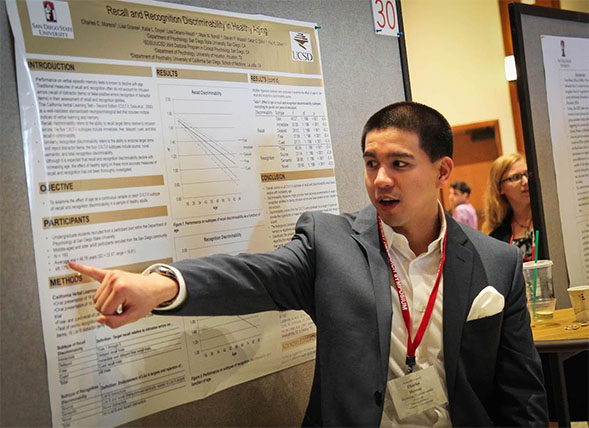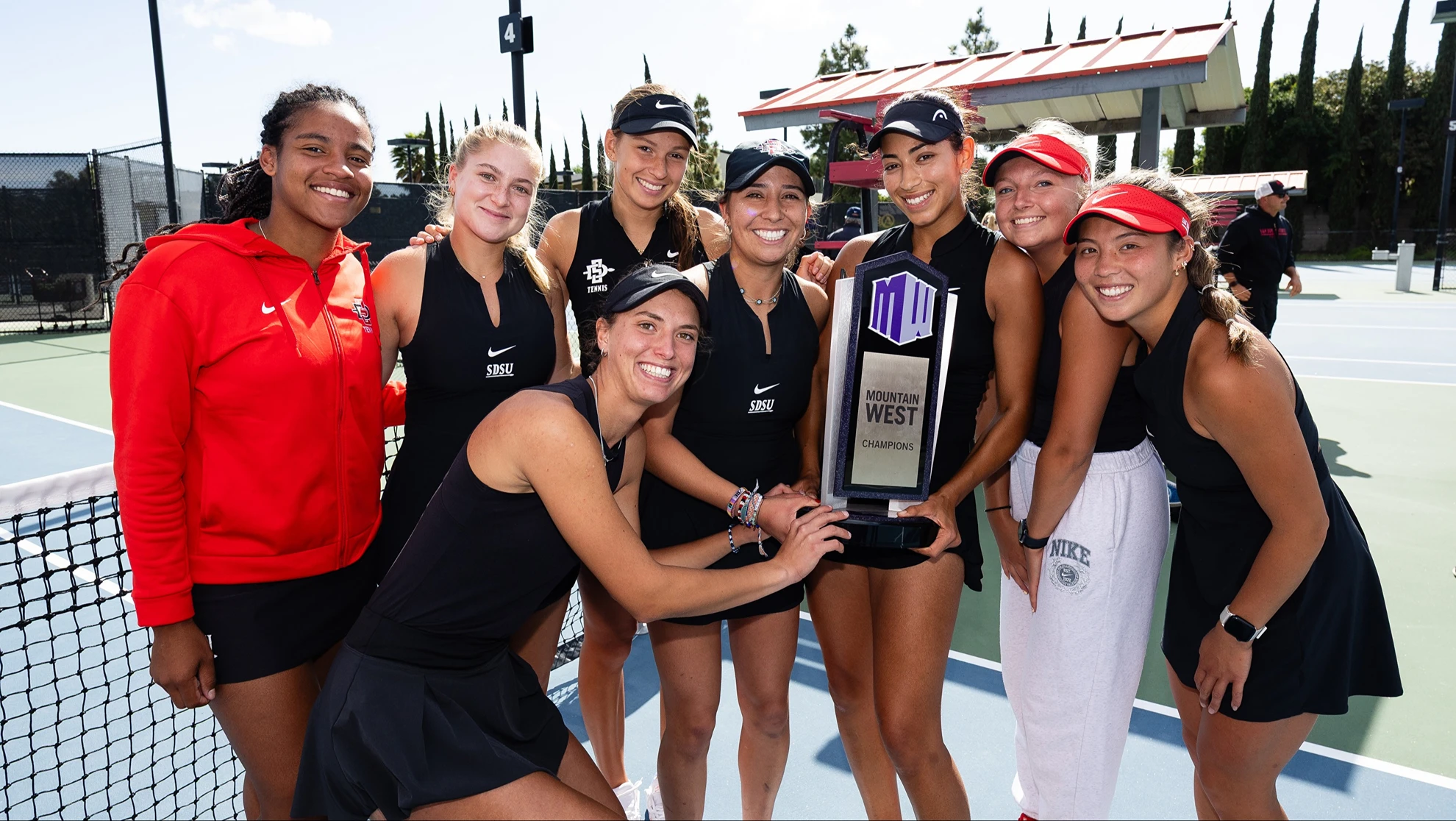Charles Moreno's Aztec Experience
This Aztec will enter a Ph.D. program after graduation this May.

Name: Charles C. Moreno
Major: Psychology with a minor in LGBT Studies
Campus affiliations: Center for Healthy Aging and Neurodegenerative Disease Research (CHANDR), Maximizing Access to Research Careers (MARC), Psychology Mentoring OutReach and Education (PsyMORE), Psychology Undergraduate Peer Advising, and SDSU Psi Chi Honor Society
1. Why did you choose SDSU?
I decided to pursue a career as a clinical neuropsychologist during my second year studying at San Diego City College. Because this profession requires extensive research experience, I chose SDSU because it is one of the nation’s major public research institutions that could help me achieve my career goals. Another reason I chose SDSU is because my military experience is highly valued here. As a Marine veteran, I firmly believe the campus recognizes the veteran community and encourages student veterans to succeed just as much as any other Aztec.
2. What inspired you to declare your major?
Post-traumatic stress disorder (PTSD) and traumatic brain injury (TBI) continue to be major mental health concerns among war veterans. My experiences during my enlistment have strongly influenced my interest in examining how TBI and PTSD interact with aging, dementia and cognitive abilities in the military. I chose to study psychology to prepare me for this line of research.
3. What is the best piece of advice you ever received?
My former jiu-jitsu instructor gave me the best piece of advice. Before training he would say, “Leave your ego at the door.” I quickly learned that attachment to ego might lead to an unrealistic confidence in my abilities that could marginalize me from colleagues and faculty.
4. Which SDSU faculty or staff member has been the most influential throughout your SDSU journey?
Paul Gilbert, a psychology professor, has been the most influential person throughout my SDSU journey. His mentorship prepared me to interview for five of the 15 clinical neuropsychology Ph.D. programs I applied to. In addition to providing research training, he advocates for underrepresented groups in a way that satisfies my academic and personal goals. I will model my mentoring style after his as I progress through academia and have students to mentor.
5. What does student success mean to you?
I believe student success is setting and achieving specific goals that provide the skills and experience needed for my career and education after SDSU. The first is to excel academically, which means developing time and stress management skills. Another goal is to seek various ways I could be involved on campus that reinforce my career and research passions. Lastly, I wanted to find ways to connect with various communities that fostered leadership skills that cannot be learned in a classroom. All of these goals were achieved during my time at SDSU.
6. What experience at SDSU has changed your life the most?
The experience that changed my life the most at SDSU was admission to the Maximizing Access to Research Careers (MARC) program. MARC is a NIH-funded honors program that identifies and supports Ph.D.-bound underrepresented students who are first generation college students, or from low-income or educationally disadvantaged backgrounds. As a MARC scholar, I have received tremendous support, mentorship and networking opportunities that have prepared me for graduate school.
7. What has been your proudest achievement while at SDSU?
After considering offers from two Ph.D. programs, I decided to attend the University of Florida (UF) Clinical Neuropsychology Doctoral Program. I will have the opportunity to follow my passion to work with veterans with PTSD and TBI. This milestone is my proudest achievement because I am one step closer to becoming a clinical neuropsychologist.
8. Where do you see yourself in 5 years?
I see myself finishing my 5th year as a doctoral candidate applying to clinical neuropsychology internship programs. I am interested in accredited internships that provide high-quality clinical training and research collaboration with physicians, nurses, physical therapists, and other health professionals in a medical center.
9. What’s your favorite thing about being an Aztec?
My favorite thing about being an Aztec is the community and the relationships I have built. Although I will be leaving San Diego to begin graduate school this fall, I am confident I will maintain these professional and personal relationships throughout the years. As cliché as it may sound, I have formed lifelong relationships with fellow Aztecs.



